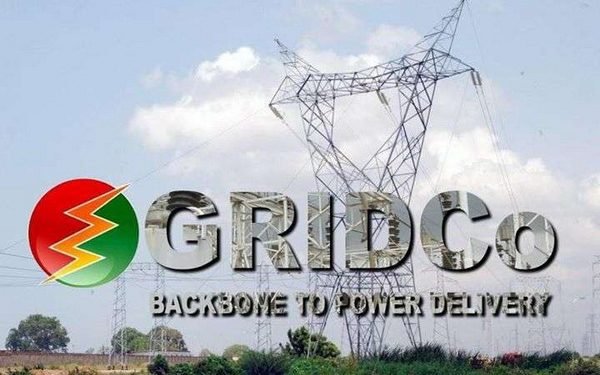The Ghana Grid Company (GRIDCo) is demanding a 130% transmission tariff hike to sustain operations from the Public Utilities Regulatory Commission (PURC).
GRIDCo, in its proposal to the PURC, argue that the existing tariff is inadequate.
The Acting Director of Corporate Strategy at GRIDCo, Samuel Kow Acquah, argued that the sharp increase in the first year will lead to subsequent adjustments will be modest.
Samuel Kow Acquah explained, “We’ve looked at a lot of cost rationalisation measures so that we don’t pass on some costs to the consumers. If you look at the first year, we require that much leap in our tariff to GHS12.96 per kilowatt hour… After the first year, an increment of 0.5% will be okay to sustain our operations.
“If we are able to do that, we can give you back 0.5%. So there can’t be a reduction of 0.5 in 2027, and for the other years, 2028 through to 2030, we are doing 0.1% and 2.5% in 2030.
“So it is very critical that we have what we are asking for so that all these investments that we enumerated we can serialise their deployment within the years we have stipulated,” he added.
Additionally, the Volta River Authority (VRA) is requesting a 59 per cent increase in its Bulk Generation Charge (BGC) from the Public Utilities Regulatory Commission (PURC).
VRA is seeking PURC to approve their demands to raise the tariff from 45.0892 Ghana pesewas per kilowatt-hour to 71.8862 pesewas per kilowatt-hour.
According to VRA, the increase is critical to fully recover the cost of power generation supplied to distribution companies (DISCOs).
VRA added that the adjustment will help sustain reliable electricity generation and meet its operational and financial obligations.
Speaking during a public hearing on Tuesday, September 9, Senior Economic Analyst at VRA, Evans Somuah Mensah, detailed, “Over the years, VRA has not been compensated for doing this work to assist the national connectivity system. We are saying that on an annual basis, VRA should be given compensation $30.49 million for Akosombo power generation, and Kpone Thermal plant, a little bit of $30,000.
“Justification for tariff increase, we are saying that we want to recover the cost of our power supply to the distribution companies, and recover the cost of transmission and also be compensated for the provisions of ancillary services. We are requesting the PURC to increase the existing tariff of BGC from 45.0892 Ghana pesewas per kilowatt-hour to 71.8862 Ghana pesewas per kilowatt-hour.”
VRA demands if approved, it will hike electricity tariffs substantially for Ghanaian households and businesses.
The VRA and GRIDCO demands follow: the Electricity Company of Ghana (ECG), which is also proposing a 224 per cent increase in tariff hike.
The Electricity Company of Ghana (ECG) has proposed a 225% increase in its Distribution Service Charge for the 2025 to 2029 tariff period.
The power distribution company is seeking an adjustment from the current GHp19.0875/kWh to an average of GHp61.8028/kWh to restore the company’s financial stability.
Their proposal notes the rising inflation, foreign exchange volatility, and interest rates.
According to ECG projections, its annual revenue requirements are rising steadily, averaging GHS 9.1 billion across the five years.
ECG’s significant tariff review has been necessitated as they expect its operational costs, human resource expenses, depreciation, capital recovery payments, and tax obligations will continue to climb.
The power distribution company, according to reports, is also recommending a wide-ranging set of reforms to the tariff structure, which include the following,
“Collapse of tariff bands to two categories for residential customers and one for non-residential users, aimed at simplifying billing. Elimination of cross-subsidisation to ensure equitable allocation of costs and non-discriminatory tariffs.
Net Metering Tariff Structure for customers with grid-connected renewable energy, in line with the government’s renewable energy policy. Adoption of the Bank of Ghana exchange rate for tariff determination to cushion against forex volatility.
Service charge allocation exclusively to ECG for meter maintenance and replacement. Introduction of a public lighting tariff to resolve funding shortfalls for street lighting.
Full recovery of investment costs for completed and ongoing projects. Inclusion of liquid fuel costs during plant shutdowns in the Weighted Average Cost of Fuel (WACOF).
Factoring in the full reserve margin cost of 18 per cent into tariffs. Monthly automatic tariff adjustments instead of the current quarterly system”, the recommendations added.
ECG proposes a 225% increase in its Distribution Service Charge for the 2025 to 2029 tariff period if approved by the Public Utilities Regulatory Commission (PURC), which would mark one of the steepest adjustments in Ghana’s electricity pricing history, putting more burden on Ghanaian households.
Meanwhile, the Public Utilities Regulatory Commission (PURC) in April 2025 announced an adjustment in electricity and water tariffs.
The PURC, in a statement, announced that electricity and water tariffs will be increased by an average of 14.75%, while water tariffs will go up by 4.02%.
According to the statement, the new tariffs are set to take effect on May 3, 2025.
“The commission, in their decision today at 6 pm, reviewed upward the average end-user tariff for electricity by 14.75 per cent and also 4.02 per cent upward for water supply across board for all categories of consumers,” he stated.
The PURC recognised that the adjustments were due to the exchange rate between the Ghanaian cedi and the US dollar, inflation projections, fuel costs, and the current hydro-thermal generation mix.
PURC, in a statement issued on Friday, April 11, revealed that the commission needs to recover 50% of the outstanding revenue amounting to GHS976 million from previous quarters in 2024
The statement added that the remaining 50% will be spread over subsequent quarters in 2025.

